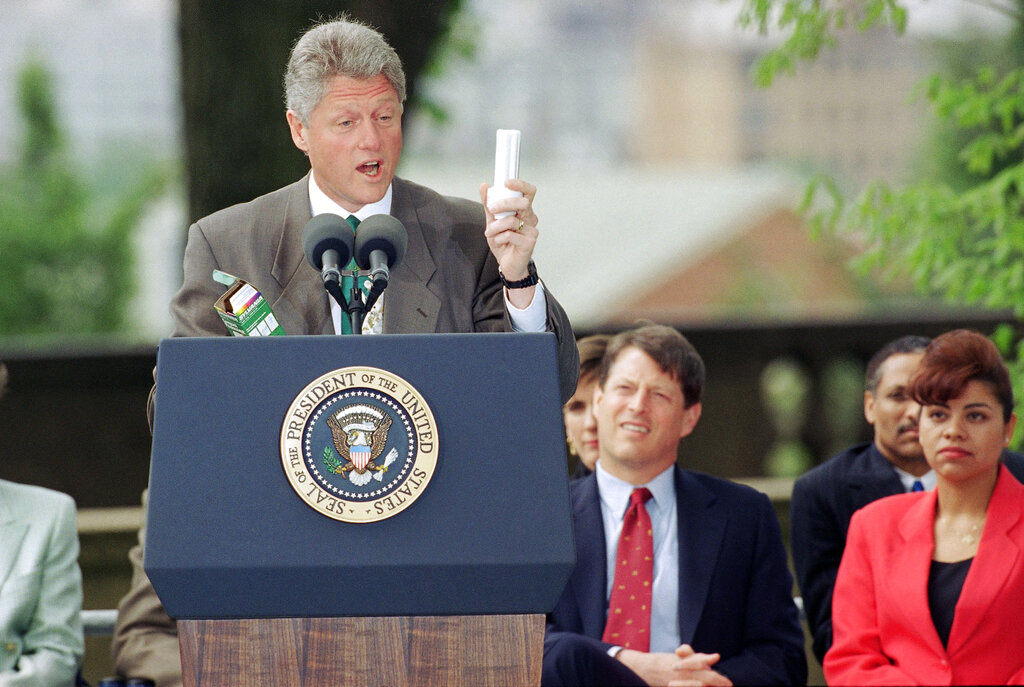Overview:
On Sept. 15, 1994, U.S. President Invoice Clinton delivered a televised tackle warning Haiti’s navy leaders that an American-led intervention was imminent. The ultimatum got here days earlier than troops deployed to revive President Jean-Bertrand Aristide, ousted in a 1991 coup.
Editor’s word: This story is a part of our “As we speak in Historical past” collection, the place The Haitian Instances revisits pivotal moments that formed Haiti and its diaspora.
On Sept. 15, 1994, President Invoice Clinton delivered a stark warning to Haiti’s navy rulers: step down or face a U.S.-led invasion.
In a televised tackle from the White Home, Clinton announced that america was ready to make use of pressure to revive President Jean-Bertrand Aristide, who had been ousted in a 1991 coup led by Gen. Raoul Cédras. Clinton instructed People that diplomacy had failed and that navy motion was now imminent except Haiti’s junta relinquished energy.
The speech got here after years of worldwide sanctions and failed negotiations. Clinton framed the intervention as each a protection of democracy within the Caribbean and a mandatory step to finish the violence and repression that had pushed tens of 1000’s of Haitians to flee by boat towards U.S. shores.
Simply days later, a delegation led by former President Jimmy Carter, Sen. Sam Nunn, and Gen. Colin Powell traveled to Port-au-Prince to barter a last-minute settlement. Their talks averted bloodshed, and U.S. forces entered Haiti on Sept. 19 with out fight, overseeing the peaceable departure of Cédras and the return of Aristide the next month.
Clinton’s warning and the following intervention underscored the deep entanglement of U.S. coverage in Haiti’s fragile democracy—a relationship that continues to form each nations right now.
Associated

